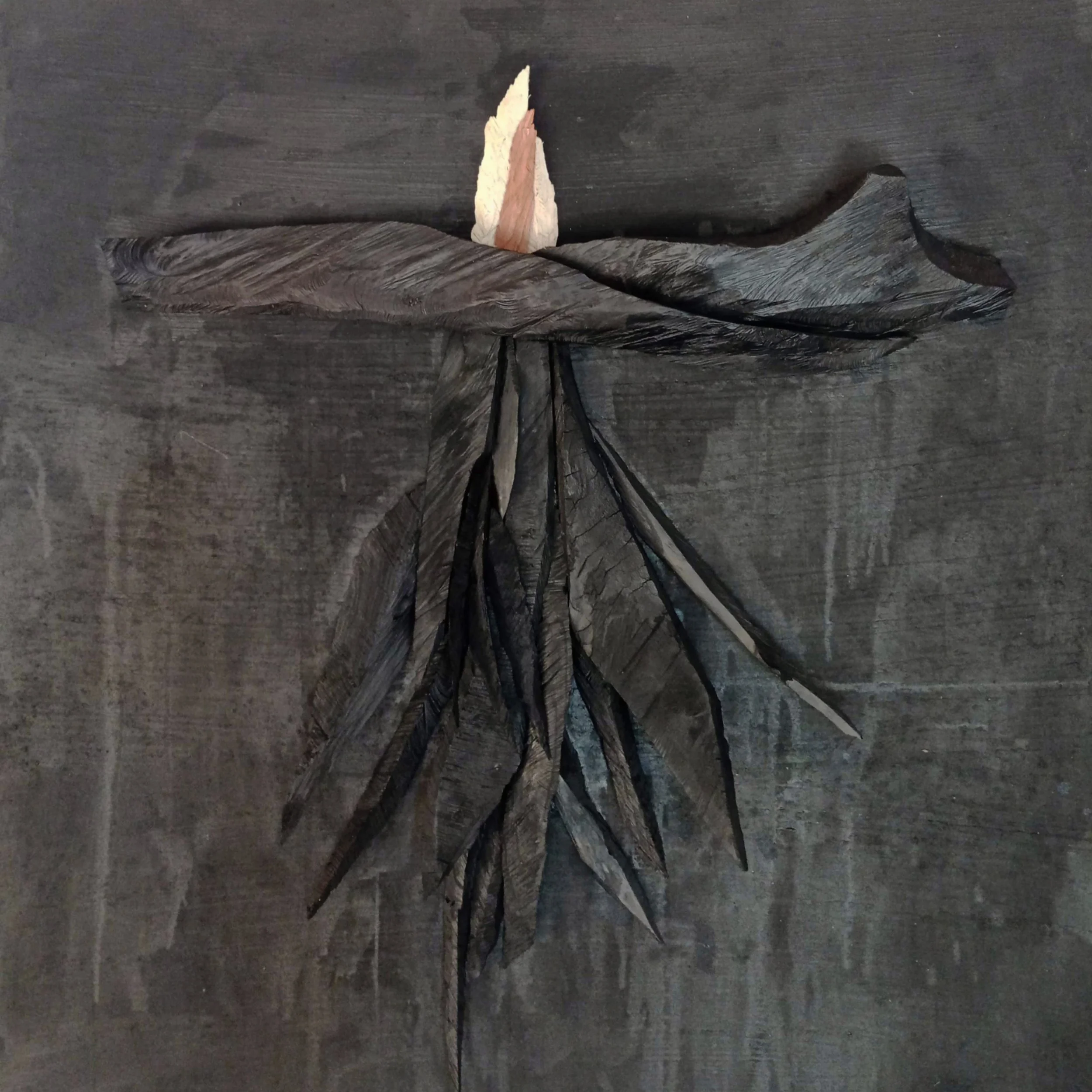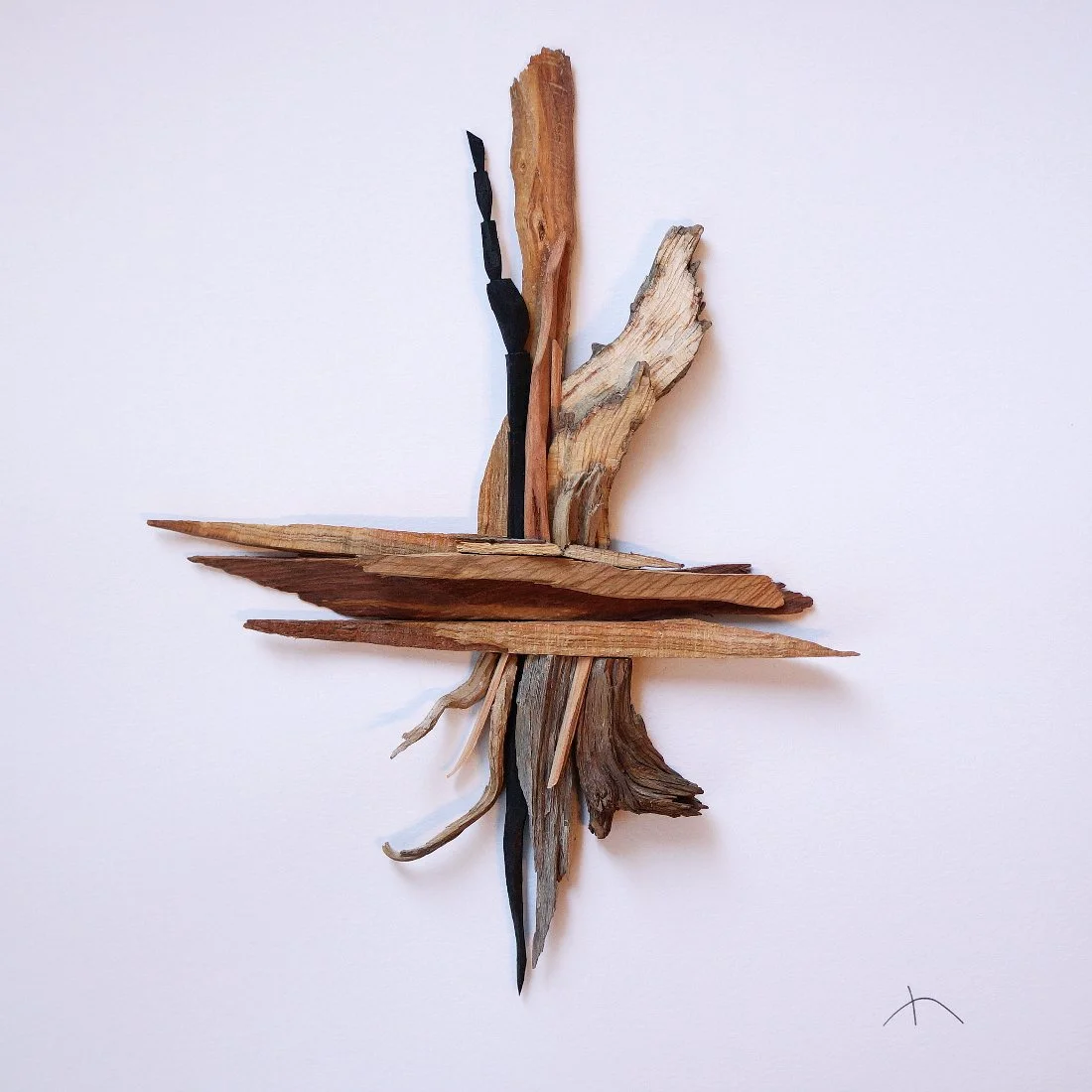Mario Molins
Mario Molins' Artistic Philosophy and Journey The core of Mario Molins' artistic philosophy was forged in the profound connection with his grandfather, a central figure in his childhood. Raised in a country house surrounded by olive trees, almond trees, cereal fields, and irrigation ditches, Mario grew up immersed in nature. It was his grandfather who taught him the art of pruning, especially that of olive trees.
Years later, when his grandfather began to suffer from Alzheimer's, Mario, in a moving attempt to preserve their shared memories and connection, brought an olive tree to his grandfather's house so they could continue pruning it together. As time passed, the disease gradually consumed his grandfather's vitality, while the olive tree, in a poetic contrast, continued to grow. It was then that Mario understood that a part of his grandfather had been transferred to the tree. The day his grandfather passed away, Mario reverently took that olive tree and planted it at the entrance of his workshop.
Since then, he continues to care for his grandfather through the pruning he was taught. This transformative experience became the cornerstone of his sculptural modus operandi. Mario takes dead trees, intervenes (prunes) them, and through this act of transformation, brings them back to life in the form of sculpture. His work is not merely a manipulation of material, but a deep reflection on the cycle of life, memory, resilience, and the interdependence between human beings and nature, honoring the ancestral wisdom and vital connection that his grandfather passed on to him.
Mario Molins: The Dialogue Between Art, Nature, and Human Essence
From his roots in Binéfar, Huesca, Spain (1983), Mario Molins emerges as a multidisciplinary artist whose restless spirit intrinsically merges with Nature. A Fine Arts graduate from the University of Barcelona with doctoral studies, Mario doesn't just create art; he lives it as an extension of his own philosophy: his work becomes a bridge connecting human beings with their primordial environment, inviting reflection on our deep-rooted relationship with the Earth.
His exhibition trajectory is as extensive as the distinctions he's received, notably the 2016 recognition from the Association of Art Critics of Aragon, Spain, as the best Aragonese artist under 35. His creations reside in numerous public and private collections, ranging from the imposing "Catharsis" in Zaragoza's Parque Grande José Antonio Labordeta, Spain, to his 2023 intervention in the Posets-Maladeta Natural Park, Spain, for the "Ballarte" Art Festival, and his recent stone sculpture in Manresa, Spain (2024), where the land itself becomes his canvas.
Beyond its form, Molins' work is a visual meditation on the interdependence, fragility, and resilience of both Nature and the human spirit. It serves as a reminder of our profound connection to the cycle of life, inviting a fuller awareness of existence. This essence is even reflected in his poetic ventures, embodied in the collections “La corteza del corazón” (The Bark of the Heart) (2020) and “Con el corazón en la mano” (With Heart in Hand) (2023), which further explore this understanding of being from a natural perspective.
To grasp the origin of his inspiration and the deep resonance of his art, one only needs to immerse themselves in his moving YouTube video "Mi abuelo es un olivo" (My Grandfather is an Olive Tree), a piece that reveals the soul of his commitment to life and Nature.
Another Cave, 2024, wood indian ink, 70x40x30
Fragmented Order, 2024, wood and indian ink, 30x30x30
Hidden darkness, 2019, wood and Indian ink, 143x130x45
Inner language, outer skin, 2019, wood, 160x35x20 / 70x20x30 / 160x34x19
Black tears, 2022, wood and indian ink, 133x32x30
Haiku at the beginning of spring, 2022, splinters on wood and indian ink, 100x100x10
Haiku of the root's secret, 2018, splinter and indian ink on paper, 50x50x4
Emotional landscape IV, 2024, Indian ink on paper, 21x84
Don't touch the seeds of Moledo, 2021, wood and indian ink, 70x300x300
Catharsis of a cypress, 2014, wood and bronze, 800x120x120















